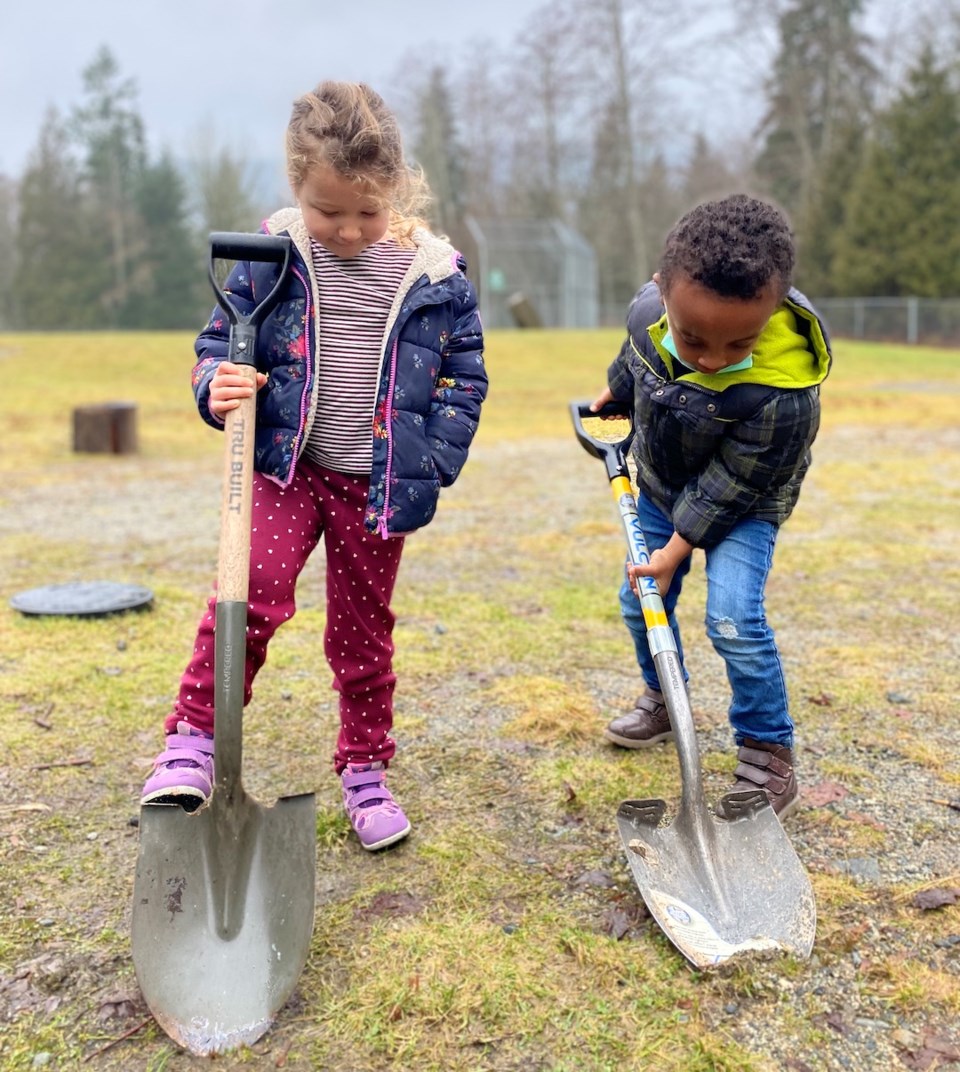The following are briefs from the virtual Sunshine Coast school board meeting Feb. 9.
For recycling-trained youth, masks littering school grounds didn’t appear to be very environmentally friendly.
So, SD46 now has a mask recycling program for students and staff to recycle their disposable masks by dropping them off in collection boxes located at Sunshine Coast schools. Superintendent Kate Kerr said the initiative was inspired by school staff as well as student advocacy around environmental education and awareness.
“It was actually started at a couple of our elementary schools that were recognizing that there were a lot of disposable masks, either on the playground or in the garbage or on the floor,” Kerr told Coast Reporter. The district student leadership team also raised their concerns and were supportive of the initiative.
Each school on the Sunshine Coast received a recycling box that can hold up to 1,500 disposable masks. Once full, the boxes are sent back to the service provider, Staples Professionals, and replaced with another. According to the company’s website, a partnership with TerraCycle helps divert single-use masks from the landfill. Information on TerraCycle’s website states the different materials from the masks are recycled into a variety of new products, such as outdoor furniture, construction materials and storage containers, after a brief quarantine period.
As far as SD46 knows, it may be the only school district in the province with such a program in place.
Rapid test kits have also been delivered to school staff, after a delayed shipment was received from the Ministry of Education. Each staff member received two tests. The ministry also plans to distribute rapid antigen at-home tests for symptomatic students but a date for those deliveries through the phased plan has not been announced. Families will receive a box with five tests for their students
Black History Month
District principal of Indigenous Learning Kerry Mahlman presented the Black History Month theme “February and Forever.” SD46 also took part in B.C.’s inaugural Black Excellence Day on Jan. 14, joining more than 10,000 other students in the province in learning and celebrating Black excellence, with presentations from various speakers. It took place the day before Dr. Martin Luther King Jr.’s birthday, Jan. 15. Ongoing learning and celebrations will take place throughout the month.
Childcare
A new $10-day childcare program has begun at Halfmoon Bay Elementary School. The Just B4 program is a licensed preschool program for four-year-old children who have yet to start Kindergarten, and aims to help them transition into school. The program uses the StrongStart BC space in the afternoon, it is led by the same StrongStart BC educator, and parents can choose which days of the week they would like their child to attend. During the meeting, Kerr said about nine students currently take part in the program.
Halfmoon Bay Elementary will be the third school in the province to take part in the program’s pilot program.
Tree removal
Around 35 identified hazardous trees will be removed from Gibsons Elementary school grounds during March break, secretary-treasurer Nicholas Weswick reported to the school board. These trees are located around the perimeter of the playfield, near the walking trail or near the fence of the school property. Weswick said the school’s parent advisory committee met with staff on Feb. 1 to discuss those plans. His report also stated the school plans to work with students to plant up to 400 new trees at the school – a 10 to one ratio for every tree that is scheduled to be removed.
“It's around student safety making sure that dangerous trees are removed before they can pose a problem,” he said.
The trees were recommended for removal after an independent consultant’s tree assessments showed the best way to mitigate risks of tree failure, which could lead to risk of safety to students and the public, as well as to housing and property. Other trees identified as low to moderate risk will continue to be monitored. Costs of removal are expected to be recovered by selling the lumber.
The school district will also consult with the Squamish Nation. Some of the replacement trees will be replanted mature trees.
“Making the best of a bad situation,” Weswick said. “Obviously, we don’t want to pull these trees down, but student safety has to be paramount for us.”
Nature classroom
Langdale Elementary School has received a $500 grant from Learning for a Sustainable Future and community donations of materials to help fund an outdoor nature-play classroom on the school’s grounds. In an email, principal Jenny Groves said the funds will go toward projects such as a mud kitchen, rain barrels, medicinal gardens, native plant restoration and a seed saving bank.
“As a school, we are looking forward to getting our hands dirty!” Groves wrote.
Active travel
The district also received a $20,000 Vancouver Coastal Health Vision Zero Road Safety grant, which will be used to support active travel for students in the form of a walking school bus pilot program, and continuing to develop maps of best routes. Students will also be supported with road safety training.



